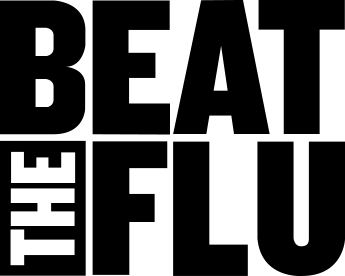
Identifying what’s true and what’s not about the prevention and treatment of the flu.

So what should you do if you have the flu?
Take vitamin C? Gargle salt-water? Eat garlic? When it comes to treating the flu, everyone has their favourite home remedies. But do they actually work?
Here we describe what’s true and what’s false when it comes to beating the flu. And what’s more, if you click on a panel below, you can learn more about that topic.


The flu and COVID-19
The flu and COVID-19 are caused by the same virus
Unlike COVID-19, the flu can be treated effectively
The flu doesn’t spread fast like COVID-19
Flu antivirals vs over-the-counter flu remedies or antibiotics
You need a prescription for antiviral flu medication
Antibiotics are a good treatment for the flu
Over-the-counter flu medicines can cure the flu
The flu vaccine
The flu vaccine can give you the flu
Only high-risk groups such as pregnant women and older people need a vaccine
You don’t need a flu vaccine every year
A flu vaccine protects you from all types of the flu
Some people are allergic to vaccine ingredients
There is no difference between a vaccine and an immunisation
Flu symptom relief
The flu is just a bad cold – the symptoms are the same
Chicken soup can cure the flu
The flu isn’t a serious illness
Antivirals can help ease symptoms of the flu
References
- Centers for Disease Control and Prevention (CDC). Flu symptoms and complications. Available from: https://www.cdc.gov/flu/symptoms/symptoms.htm. Last accessed: October 2020.
- Centers for Disease Control and Prevention (CDC). Coronavirus Disease 2019 (COVID-19). Frequently Asked Questions. Available from: https://www.cdc.gov/coronavirus/2019-ncov/faq.html. Last accessed: October 2020..
- Centers for Disease Control and Prevention (CDC). COVID-19 symptoms. Available from: https://www.cdc.gov/coronavirus/2019-ncov/symptoms-testing/symptoms.html. Last accessed: October 2020.
- Centers for Disease Control and Prevention (CDC). What You Should Know About Influenza (Flu) Antiviral Drugs: Fact Sheet, 2018. Available from: www.cdc.gov/flu/pdf/freeresources/updated/antiviral-factsheet-updated.pdf. Last accessed: October 2020.
- World Health Organization (WHO). Q&A on coronaviruses (COVID-19). Available from: https://www.who.int/news-room/q-a-detail/q-a-coronaviruses. Last accessed: October 2020.
- World Health Organization (WHO). Q&A: Similarities and differences – COVID-19 and influenza. Available from: https://www.who.int/news-room/q-a-detail/q-a-similarities-and-differences-covid-19-and-influenza. Last accessed: October 2020.
- Lehnert R et al. Dtsch Arztebl Int 2016; 113(47): 799–807.
- Low D. Clin Microbiol Infect 2008; 14(4): 298–306.
- Klepser ME. Drugs 2014; 74(13): 1467–1479.
- Stiver G. CMAJ 2003; 168(1): 49–56.
- Centers for Disease Control and Prevention (CDC). Key Facts About Seasonal Flu Vaccine, 2018. Available from: https://www.cdc.gov/flu/prevent/keyfacts.htm. Last accessed: October 2020.
- Lee LYY et al. PLoS Pathog 2020; 16(4): e1008395.
- Lou Z et al. Trends Pharmacol Sci 2014; 35(2): 86–102.
- Centers for Disease Control and Prevention (CDC). Understanding How Vaccines Work, 2018. Available from: www.cdc.gov/vaccines/hcp/conversations/downloads/vacsafe-understand-color-office.pdf. Last accessed: October 2020.
- Centers for Disease Control and Prevention (CDC). Who Needs a Flu Vaccine and When, 2017. Available from: https://www.cdc.gov/flu/prevent/vaccinations.htm. Last accessed: October 2020.
- Centers for Disease Control and Prevention (CDC). People at High Risk of Developing Serious Flu–Related Complications, 2018. Available from: www.cdc.gov/flu/about/disease/high_risk.htm. Last accessed: October 2020.
- Centers for Disease Control and Prevention (CDC). Misconceptions about Seasonal Flu and Flu Vaccines, 2018. Available from: https://www.cdc.gov/flu/prevent/misconceptions.htm. Last accessed: October 2020.
- Talbot HK et al. Clin Infect Dis 2013; 56(12): 1774–1777.
- Centers for Disease Control and Prevention (CDC). Morbidity and Mortality Weekly Report, 2016; 65: 5. Available from: https://www.cdc.gov/mmwr/volumes/65/rr/pdfs/rr6505.pdf. Last accessed: October 2020.
- Centers for Disease Control and Prevention. Estimated Influenza Illnesses, Medical visits, Hospitalizations, and Deaths in the United States — 2017–2018 influenza season. Available from: www.cdc.gov/flu/about/burden/2017-2018.htm. Last accessed: October 2020.
- Allen UD et al. Can J Infect Dis Med Microbiol 2006: 17(5): 273–284.
